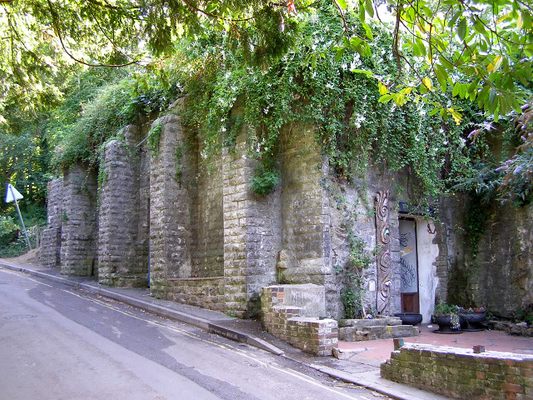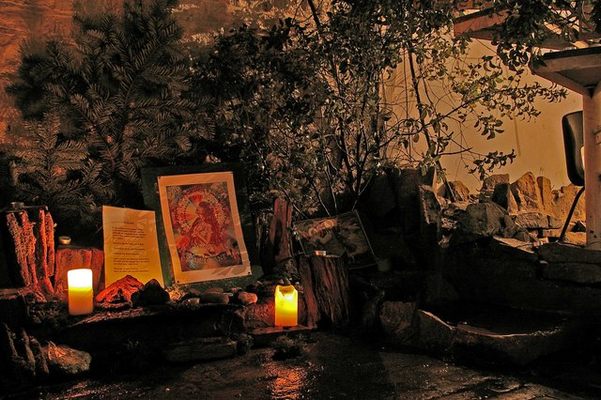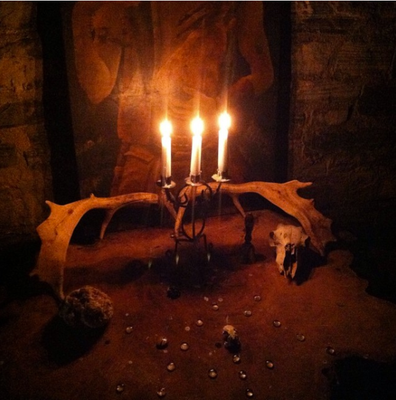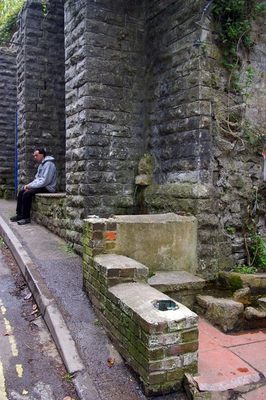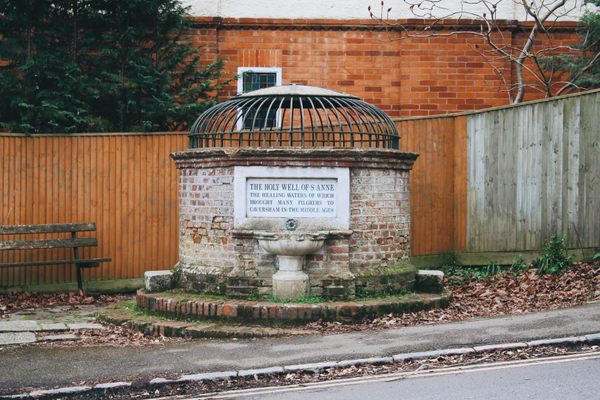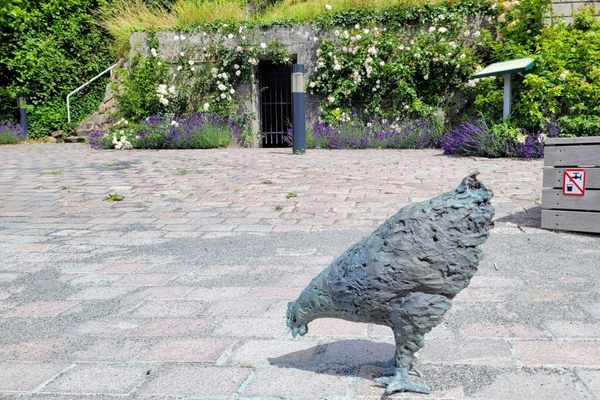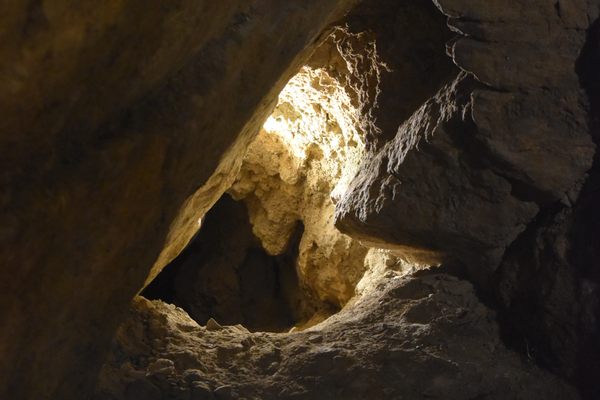About
The beautifully sculpted gardens of the Chalice Well surround Glastonbury's most famous natural water source, the Red Spring, so called for the iron oxide it deposits in its basin. But just opposite this famous site, down a little lane at the foot of Glastonbury Tor, lies its counterpart: the White Spring.
Named for the calcite stains that the water leaves behind, the White Spring is housed within a huge stone pump house from the Victorian period. Built to collect the natural waters of the spring, the well was soon abandoned, as the high calcium content of the water constantly blocked up pipes.
The well house is windowless, and very dark; the only light comes from the doorways and from the hundreds of candles lining the walls and adorning the handcrafted pagan shrines which fill the space. Chief among them are shrines to Brigid (a Celtic fire goddess), Our Lady of Avalon, and the King of Faerie.
Benches line the walls, allowing visitors a (mostly) dry place to sit and soak up the ambiance—the archways of twisted branches above the shrines, the constant echo of running water which fills the arched stone well house, and the occasional prayer or chant.
The water flows out of the back wall and passes through a series of pools and channels—all built, say the owners of the spring, according to principles of sacred geometry—before collecting in a wide central basin. Bathing, including in the nude, is permitted there, though visitors should be aware that the water is very cold and the uneven stones can be slippery. The spring is said to have healing properties, and visitors are welcome to collect its water from the basins within or one of the pipes without.
A sign at the door warns visitors to enter at their own risk, citing the dangers of naked flames, deep water, and faerie portals.
Related Tags
Know Before You Go
Admittance is free, but donations are suggested. All staff are volunteers. No photography is permitted within the spring.
Published
February 16, 2018
